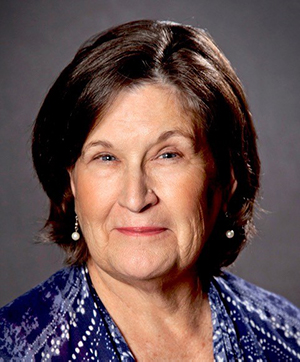By LAURA LEE LEATHERS

Lessons from 3 biblical caregivers
“It” has been a part of my life for 10 years. It has required sacrifice, serving and acceptance. Sometimes the weight of responsibility has brought a loss of sleep, time, money and tears of exasperation. “It” has changed my life.
What is “it”? Caregiving!
A caregiver is any individual who assists or provides direct care for a person, regardless of age. Over the past year, we’ve especially depended upon and recognized the “frontline caregivers”: doctors, nurses, physical therapists and others.
But who is taking care of the caregiver? Over time, the caregiver may find themselves facing isolation, resentment or guilt. They’re trying to balance their home life and job while maintaining their health.
Caregiving might not be something you’re planning for. But we all know nothing is going as we expected. It is wise to have a plan in place, in case you have to shoulder the responsibility.
Three individuals in the Bible give us a glimpse of biblically based caregiving:
Joseph’s provision for Jacob (Genesis 45:25–49:33)
At the end of the book of Genesis, after years of separation, Jacob and Joseph reunite. Before the Ten Commandments were given to the nation of Israel, we see Joseph’s desire to honor and provide for his father in his final days.
Exodus 20:12 says, “Honor your father and your mother.” Paul elaborates in Ephesians 6:2–3, “this is the first commandment (regarding human relationships) with a promise, that it may go well with you and that you may live long in the land.”
We are to give willingly out of love and respect. When we do, we receive a special blessing, a promise, because of obedience to this commandment. Most importantly, as believers in Christ, how we treat our parents is a witness to the world.
Ruth’s commitment to Naomi (the book of Ruth)
The book of Ruth gives us a glimpse into a unique bond of loyalty between a mother and her daughter-in-love. Ruth tells Naomi, “Do not urge me to leave you or to return from following you. For where you go I will go, and where you lodge I will lodge. Your people shall be my people, and your God my God. Where you die I will die, and there will I be buried. May the LORD do so to me and more also if anything but death parts me from you” (1:16–17).
The next verse tells us Naomi “saw” that Ruth was determined to go with her. Ruth’s statements weren’t mere words but a demonstration of commitment to God and Naomi.
Ruth took the initiative, served graciously, and is an excellent role model of a caregiver. As a result, Naomi received not only provision, but a grandson in the lineage of Jesus Christ.
Jesus’ compassion for Mary (John 19:25–27, 30)
Picture the final moments of Jesus’ life. He is sacrificially paying the price for all our sins, and enduring God’s wrath. However, “When Jesus saw His mother and the disciple whom He loved standing nearby, He said to His mother, ‘Woman, behold, your son!’ Then He said to the disciple, ‘Behold, your mother!’ And from that hour the disciple took her to his own home.”
Jesus not only completed the work His Father sent Him to do, but His final act was to provide for His mother. Mary was a part of “His own who were in the world,” whom He loved “to the end” (John 13:1b).
Sometimes we can’t provide direct care for our loved one, and we need to depend on another. The apostle John became a son to Mary in Jesus’ place. Why John, and not Jesus’ half-brothers? Perhaps because they weren’t believers at that time. Choose a person or facility wisely!
A word of wisdom for the caregiver
If you don’t take care of yourself as a caregiver, it may become impossible to take care of someone else. Consider the following:
◆ Plan for a time of respite.
◆ Keep a journal or daily log. Days can run together, and this helps you not to trust your memory.
◆ Stay positive and build in fun experiences. Laughter is good medicine!
◆ Maintain a healthy diet. Go walking or find an exercise plan — you need the release of endorphins.
◆ Find ways to maintain relationships with family and friends. Stay connected to your church family.
◆ Most importantly, depend on the Lord for everything; stay in the Word and pray without ceasing.
Caregiving is an enormous responsibility, and one you can’t do on your own. As you give, you realize it’s God’s sustaining grace that sees you through. Jesus gives us strength, courage, patience, perseverance, provision, peace, and so much more. And as you give, you receive blessings beyond measure!
Additional resources:
◆ HopeForTheCaregiver.com with Peter Rosenberger
◆ Under the Mississippi Department of Human Services: Family Caregiver Support Program, 601.359.4500
◆ Do an internet search: “scriptures for the caregiver”

In this new season of her life, Laura Lee hopes to focus on her three passions: freelance writing, sharing and serving through hospitality, and cultivating Lady Laura’s Garden, a cut-flower farm. You can contact her at LauraLeeLeathers.com.

